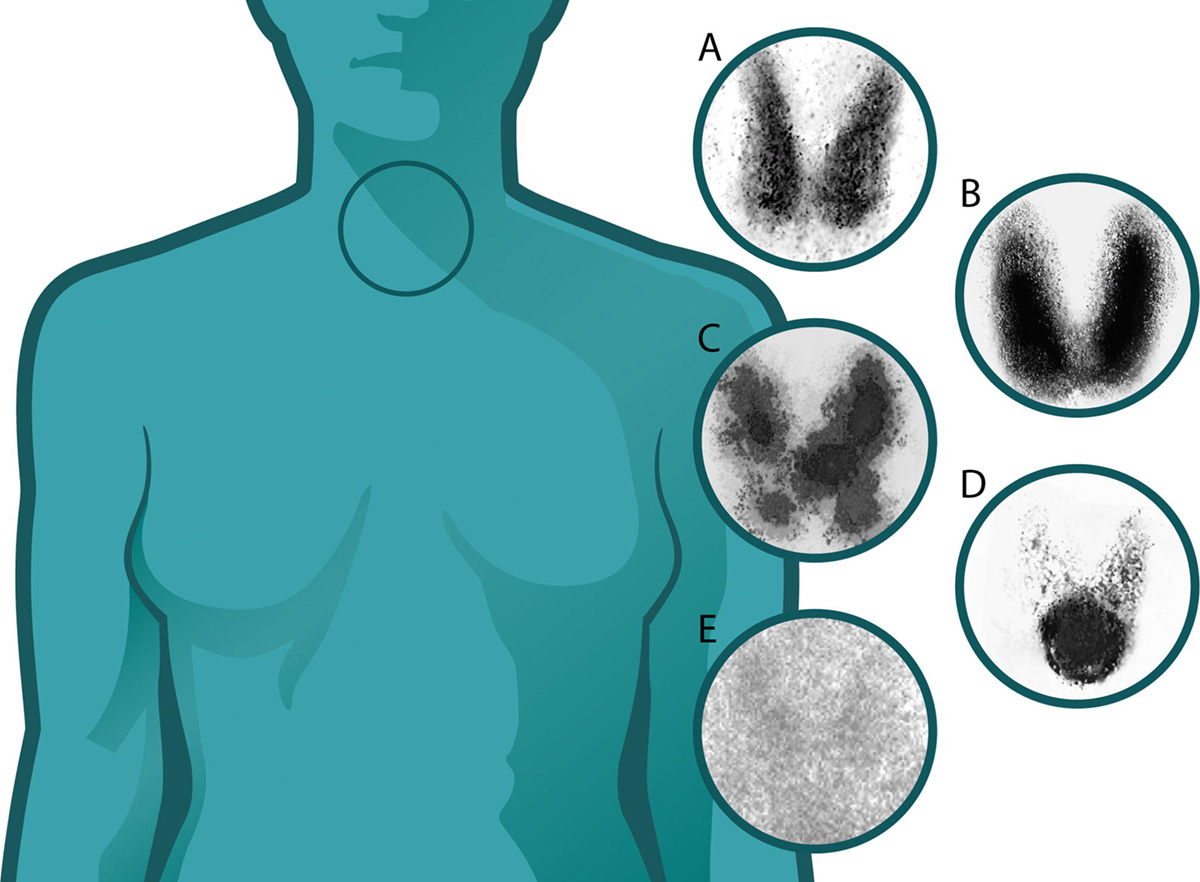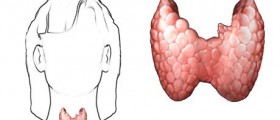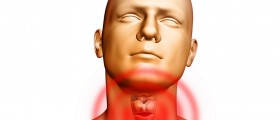
Hashimoto's disease (chronic lymphocytic thyroiditis) is an autoimmune disorder which affects the thyroid gland. This is the condition in which the typical thyroid composition is damaged by various antibodies. The lymphocytes make auto antibodies which attack the thyroid and this causes enlargement of the thyroid or damage to the thyroid tissue. Hashimoto's disease is hereditary and it affects females more than males. It usually occurs in the age of 40 or 50, but in some cases it can affect children. Sometimes the condition can be so mild that the person does not notice it for years, but if the disease is left untreated, it can cause complications and damage to the thyroid gland.
The enlargement of the thyroid is a first symptom of Hashimoto's disease. The patient may not feel any pain at this stage but it does not mean that the development of the disorder is slow. In fact, it can be very destructive and cause the thyroid gland to stop producing the thyroid hormone. One of the symptoms of the disorder is pain in the thyroid gland. The other symptoms which occur as a consequence of Hashimoto's disease can easily be mistaken for PMS, anxiety disorder or some other condition. These symptoms are tiredness, depression, sleepiness, panic attacks, headaches, losing hair, gaining weight, high cholesterol, constipation and sensitivity to cold and heat. If Hashimoto's disease affects children or teenagers, it can cause hormone difficulties and problems with proper development.
In order to establish an accurate diagnose, the doctor will have to check if there is an increased number of the antibodies in the blood which can indicate that the disease advances rapidly. The proper treatment is very important because if the thyroid gland is left untreated, it can cause damage to the muscles or even a heart attack.
The cure for Hashimoto's disease does not exist but the patient can be treated with a beta-blocker or some ant thyroid medications. If the thyroid is enlarged, its dimensions can be reduced with thyroxin. The best treatment is replacement of the hormones in order to bring the thyroid hormone levels back to normal. The most important thing is to prevent the damage of the thyroid. Usually the patient will have to receive the treatment for the rest of his/her life. In rare cases, if the patient develops a cancer which causes the enlargement of the thyroid, a surgery would be necessary. This can be diagnosed with a biopsy of the thyroid.





-In-Infants-And-Older-Children_f_280x120.jpg)
-And-Children-16-Warning-Signs-And-Symptoms_f_280x120.jpg)


-During-Pregnancy_f_280x120.jpg)







Your thoughts on this
Loading...